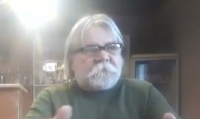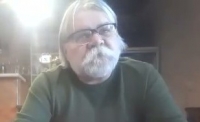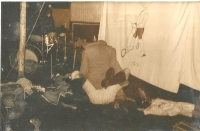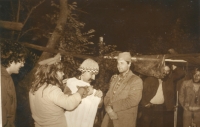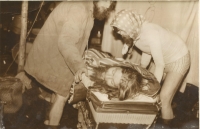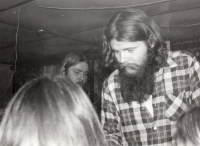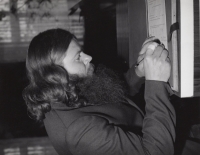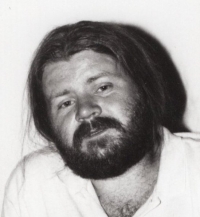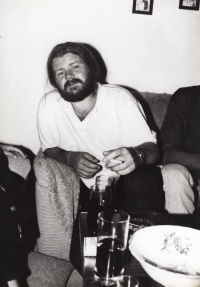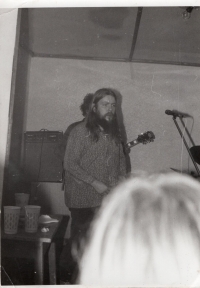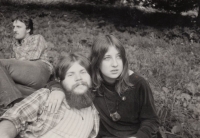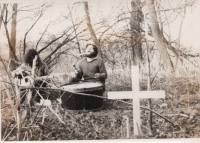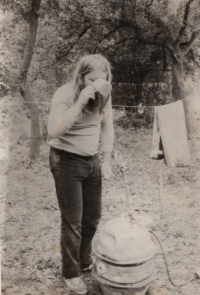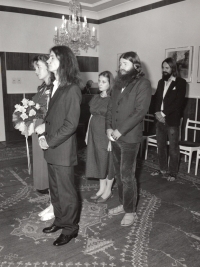We would make two pots of goulash, the beer was free

Download image
Jaroslav Hýbner was born on 28 July 1963 in Přerov. He lived in Kojetín with his parents, where he joined the local cultural underground movement. With his friends, in the 1980s, he had been organising illegal music festivals ‘Lennoniáda’ and ‘Akustiáda’, as well as several unique art shows. He had been part of the ‘Hurvínkova koloběžka’ (‘Hurvínek’s Scooter’) theatre troupe, performing at several underground festivals. He witnessed several police raids and had repeatedly ended up in a police cell. He had signed and distributed several anti-regime petitions, like ‘Just a few sentences’, and at home, he had been copying samizdat literature and books banned by the communist regime using carbon paper. In November 1989 he co-founded the local Civic Forum branch in Kojetín, becoming its first spokesperson. However, he left the Civic Forum after some time and in 1991 he was one of the founders of the Civic Democratic Party branch in Kojetín and had been serving as its local chairman at the time the interview had been taken (2021). He has four kids with his wife, Klára – Jan, Jaroslava, Klára and Jakub.
